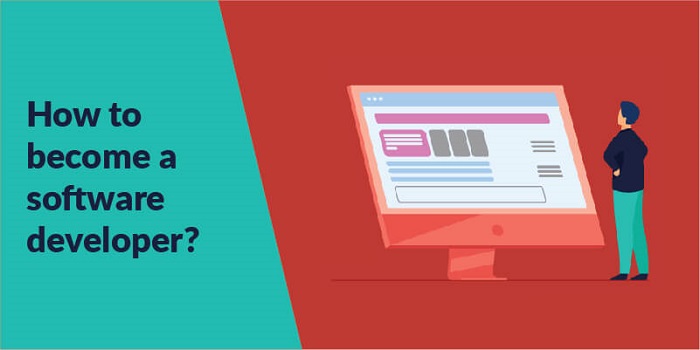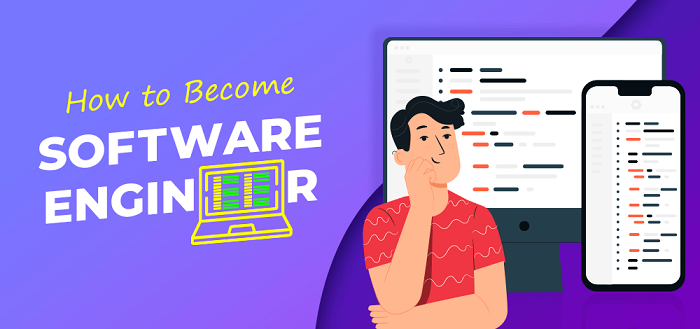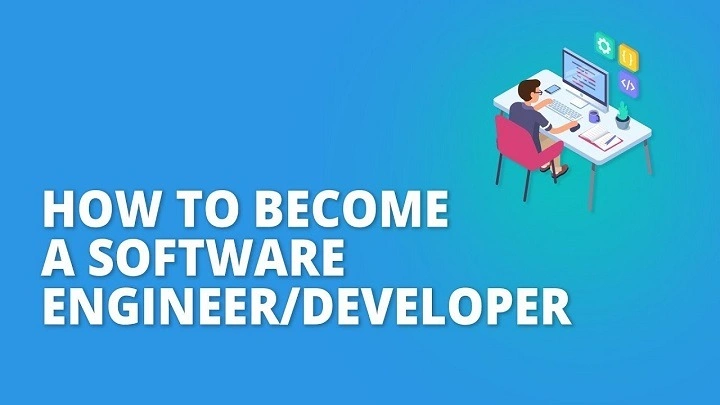The world of software development is dynamic and rewarding, offering endless opportunities for those willing to learn and adapt. This comprehensive guide will walk you through every step necessary to become a software developer, from understanding the basics to landing your first job.
Software development is an exciting field that involves the creation and maintenance of applications, frameworks, or other software components. It plays a crucial role in today’s technology-driven world, impacting nearly every aspect of our daily lives. Whether it’s mobile apps, web applications, or complex systems used in businesses, software developers are at the heart of technological innovation.
Why Choose a Career in Software Development?

- High Demand: The demand for skilled software developers continues to grow as technology advances.
- Lucrative Salaries: Software development is one of the highest-paying fields.
- Creative and Challenging Work: Developers solve complex problems and create innovative solutions.
- Remote Work Opportunities: Many companies offer remote work options, providing flexibility.
- Continuous Learning: The field evolves rapidly, offering endless learning opportunities.
Understanding the Basics
Before diving into the educational pathways and skills required, it’s essential to understand what software development entails and the various roles within the field.
What is Software Development?
Software development involves the process of designing, coding, testing, and maintaining software applications. It can be broken down into several stages:
- Planning: Identifying the requirements and creating a blueprint.
- Designing: Creating the architecture and user interface design.
- Coding: Writing the actual code using programming languages.
- Testing: Ensuring the software is bug-free and meets requirements.
- Deployment: Releasing the software for use.
- Maintenance: Updating and fixing issues over time.
Different Types of Software Developers
Software development encompasses various specializations, each focusing on different aspects of software creation:
- Frontend Developers: Focus on the user interface and experience (HTML, CSS, JavaScript).
- Backend Developers: Handle server-side logic and databases (Java, Python, Ruby).
- Full-Stack Developers: Combine frontend and backend development skills.
- Mobile Developers: Create applications for mobile devices (Swift, Kotlin, Flutter).
- DevOps Engineers: Ensure smooth deployment and operations of software.
- Data Scientists: Analyze data to provide insights and drive decision-making.
- Game Developers: Design and build video games (Unity, Unreal Engine).
Educational Pathways
There are multiple pathways to becoming a software developer, each with its own set of advantages and considerations.
Formal Education
Pursuing a degree in computer science or a related field is a traditional and well-regarded route.
Bachelor’s Degree: Typically a four-year program covering programming, algorithms, data structures, and more.
Master’s Degree: Offers advanced knowledge and specialization opportunities.
Pros:
- Comprehensive and structured learning.
- Access to academic resources and networking opportunities.
- Recognized credentials.
Cons:
- Time-consuming and expensive.
- May include courses not directly related to programming.
Self-Learning
Many successful developers are self-taught, leveraging online resources and personal projects.
Online Courses and Tutorials: Platforms like Coursera, Udemy, and Khan Academy offer courses on various topics.
Pros:
- Flexible learning pace.
- Cost-effective or free resources.
- Focused on practical skills.
Cons:
- Requires self-discipline and motivation.
- Lack of formal credentials.
- May miss out on networking opportunities.
Bootcamps
Coding bootcamps are intensive, short-term programs designed to teach you programming skills quickly.
Duration: Typically 3 to 6 months.
Focus: Hands-on experience and job-ready skills.
Pros:
- Fast track to gaining skills.
- Job placement assistance.
- Practical, project-based learning.
Cons:
- Intensive and demanding.
- Can be expensive.
- Limited depth compared to formal education.
Choosing a Programming Language

Selecting the right programming language is crucial, as it shapes your career path and the types of projects you can work on.
Popular Programming Languages
- JavaScript: Essential for web development, both frontend and backend (Node.js).
- Python: Versatile, great for web development, data science, and automation.
- Java: Widely used in enterprise applications and Android development.
- C++: Preferred for system/software development and game development.
- Ruby: Known for web development with Ruby on Rails.
- Swift: Used for iOS and macOS app development.
- Kotlin: Modern language for Android development.
Language Specific Career Paths
- Web Development: JavaScript, Python, Ruby.
- Mobile Development: Swift, Kotlin, Java.
- Game Development: C++, C#, Unity.
- Data Science: Python, R.
- Enterprise Applications: Java, C#.
Building Your Skill Set
To become a proficient software developer, you need to build a robust skill set that includes core programming skills, advanced techniques, and essential soft skills.
Core Skills
- Programming Languages: Master one or more programming languages.
- Data Structures and Algorithms: Understand how to organize and manipulate data efficiently.
- Version Control: Learn Git for tracking changes in your code.
- Problem-Solving: Develop strong analytical and logical thinking skills.
- Debugging: Learn to identify and fix bugs in your code.
Advanced Skills
- Software Architecture: Understand design patterns and architectural principles.
- Databases: Learn SQL and NoSQL databases.
- APIs: Gain experience in building and consuming APIs.
- Cloud Computing: Familiarize yourself with AWS, Azure, or Google Cloud.
- DevOps: Learn about continuous integration and deployment (CI/CD) practices.
Soft Skills
- Communication: Clearly articulate ideas and collaborate with team members.
- Time Management: Prioritize tasks and manage deadlines effectively.
- Adaptability: Stay updated with new technologies and industry trends.
- Teamwork: Work well within a team and contribute to collective goals.
Practical Experience
Gaining practical experience is essential for honing your skills and making you job-ready. There are several ways to gain this experience:
Personal Projects
- Build Real-World Applications: Create projects that solve real problems.
- Open Source Contributions: Contribute to open-source projects on platforms like GitHub.
- Portfolio Development: Use personal projects to build a strong portfolio.
Internships
- Gain Industry Experience: Intern with tech companies to understand real-world development processes.
- Networking Opportunities: Build connections within the industry.
- Learn from Mentors: Gain insights and guidance from experienced developers.
Freelancing
- Client Projects: Take on freelance projects to gain diverse experience.
- Build a Reputation: Develop a portfolio and gather client testimonials.
- Flexible Learning: Choose projects that align with your learning goals.


